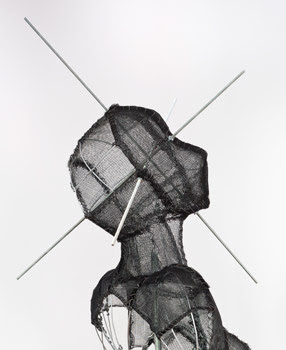Q&A: How Does Our Mind "Create" Problems Like Anxiety, Depression, or Eating Disorders?
QUESTION
How does our mind “create” problems like anxiety, depression, bulimia, anorexia?
ANSWER
In order to manage unpleasant feelings or threatening environments our body and mind develops certain beliefs, reactions, and behaviors. Some of them, like you mentioned, are chronic or acute anxiety, depression, eating disorders, self-mutilation, abusive behavior, and many others. The origins of it can be traced back to a person’s early development and formative years, but some of it can develop or intensify in later life.
Human beings are mainly shaped by their environment. We learn to adapt to it and develop certain traits, characteristics, and behaviors to survive better in whatever environment we are in. Some of those strategies and reactions are unhealthy and counterproductive, if you look at it from a completely objective, detached, or myopic perspective. Of course cutting your own body with a razor blade until you bleed, or vomiting out your food, or feeling and acting helpless when you are not is not something that is good for you. However, these mechanisms make sense if you understand the environment in which they were developed. These survival mechanisms helped the person endure and cope with painful experiences and overwhelming emotional reactions.
For instance, if as a child you were bullied, humiliated, or isolated, you may have developed social anxiety because some of your more significant social interactions and environments were distressing or even dangerous, and so your mind learned to be overly cautious and alert around people. Therefore in later social life you feel anxious, avoidant, or aggressive. It is to protect you from the pain that you felt as a response to what happened before.
Or, if you were not allowed to be angry at people who hurt you, you may direct it inward (self-loathing, self-harming, self-destructive behavior) or act it out on others (abusive, destructive behavior). It is an emotion management mechanism that the person developed to deal with the feeling of anger and everything it is related to.
Depression for the most part is a passive mental and physical state, where you feel helpless, hopeless, detached, disconnected, anxious, tired, or distracted. Usually it is related to feeling a lack of control or to repressed feelings and unresolved experiences.
Anxiety is a state of vigilance and restlessness. It can be in relation to something very specific (to money, to your boss) or general (it’s there without a clear source). When we feel anxious, it means that our mind has detected a problem—be it real or perceived—and is trying to deal with it, often by obsessively thinking about it.
Eating disorders and other food related problems usually are forms of self-loathing. These phenomena are related to poor self-care, low self-esteem, self-harm, and false belief systems.
SUMMARY AND FINAL THOUGHTS
Human beings develop certain beliefs, reactions, and mechanisms as survival tactics to a problematic environment. Some of them may look weird or counter-intuitive. Why would a person do something that is “clearly” against their best interest? However, when you understand the feelings, experiences, and beliefs behind it, it all makes perfect sense. It doesn’t mean these tactics become healthy, but it helps understand that perhaps to some people cutting themselves or vomiting, or taking hazardous risks is a release, which is the opposite of the inner pain they feel.
The problem is, however, that what was a survival mechanism when we were small, dependent, and lacked freedom and agency, now is a hindrance. Now, as adults, we can recognize that (1) we are in a much different position, and (2) that there are better ways to deal with life’s challenges. And so the goal becomes to slowly let go of these once oh so useful survival tactics and find ways to rewire our mind to help us think, feel, and behave differently.
RECOMMENDATIONS
Emotions: Anger [article]
Emotions. An Introduction [article]
Projected Anger [video]
Empathy And Laughing At Others’ Misery [article]
Nathaniel Branden "Emotions and Repression (Part 1): The Repression of Negatives" [article]
Self-Esteem playlist [video]
Support my work by becoming a Patreon subscriber for $5/mo or more and get access to bonus articles. And check out my book Human Development and Trauma: How Childhood Shapes Us into Who We Are as Adults. Thanks!




Comments
Post a Comment